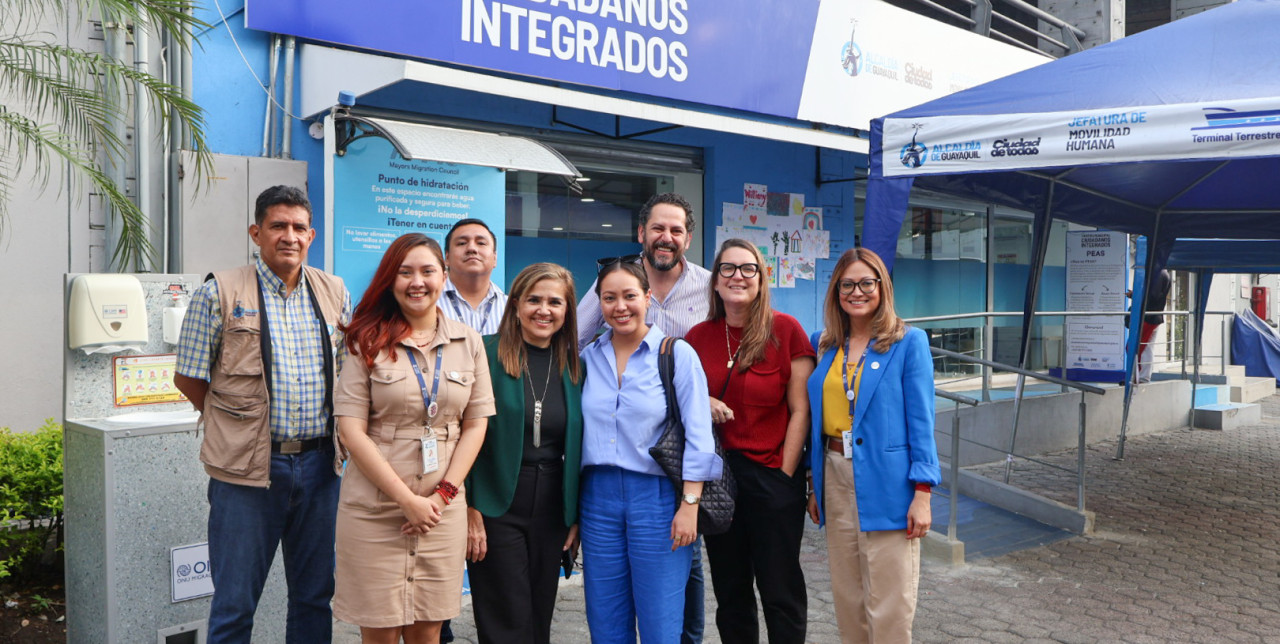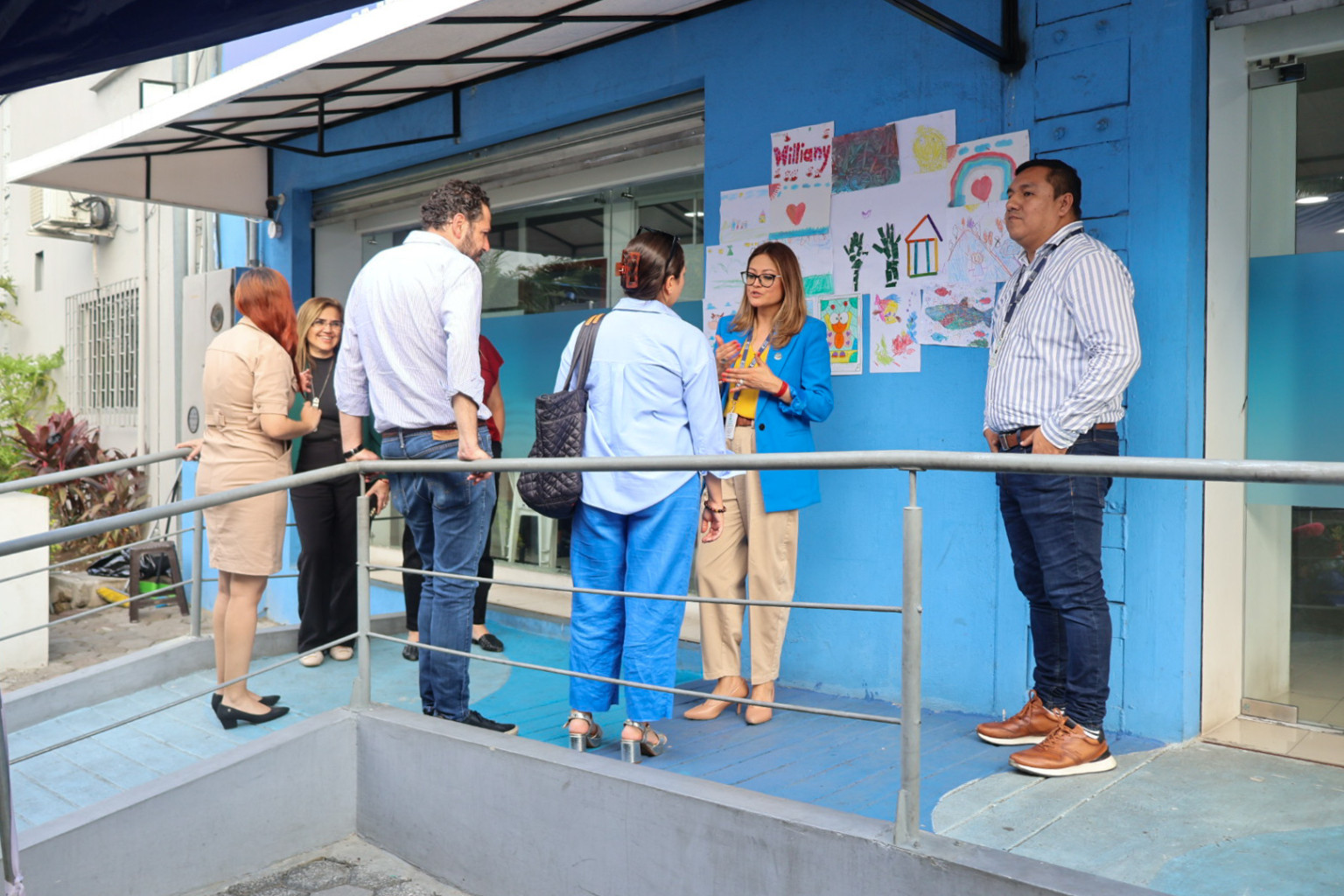04-10-2024 | di COOPI
Ecuador. Visit of the Conrad N. Hilton Foundation to the Integrated Citizens Municipal Center of Guayaquil
On the 4th of October COOPI - Cooperazione Internazionale, in collaboration with the Human Mobility Department of the Municipality of Guayaquil, welcomed the Conrad N. Hilton Foundation and municipal authorities at the Integrated Citizens Municipal Center (CMCI) of Guayaquil. The purpose of the visit was to discuss the impact of the project and explore opportunities to expand services for the migrant population.
The delegation included Blanca López, Vice Mayor of Guayaquil; Mónica Menéndez, Advisor for Planning and External Cooperation Projects; Susana Cortázar, Head of the Human Mobility Department; Marcela Gonzalez, Program Officer, Refugees; Barri Shorey, Senior Program Officer, Refugees Initiative and Disaster Program; Lucas Gomez, Latin America Consultant; and Belén Ramos, Country Coordinator for COOPI, along with the COOPI Guayas team.
During the meeting, the results of the CMCI were presented, which has benefited over 2,170 people and provided 4,308 services since its opening. The need to expand services, especially in educational support for migrant children and adolescents, was discussed, along with proposals to improve the center's facilities.
The delegation toured the CMCI facilities, where the management model and services for social assistance, health, and psychological support for the migrant and refugee population were showcased. Initiatives such as municipal brigades and citizenship fairs were also addressed, as well as efforts to combat xenophobia.
The visit concluded with a discussion on the role of the CMCI in the Global Cities Fund projects of the Mayors Migration Council, highlighting the importance of international partnerships to ensure the sustainability and impact of the project on the migrant community.
COOPI has been working in Ecuador since 1967, implementing development projects to help combat poverty and respond to emergencies, adhering to the principles of human rights, gender, interculturality, and governance. The projects have addressed intervention areas such as child protection, water, sanitation and hygiene, equipment and infrastructure improvements, livelihood generation and socioeconomic inclusion, governance, human rights, and sociocultural integration.




 Ecuador
Ecuador
